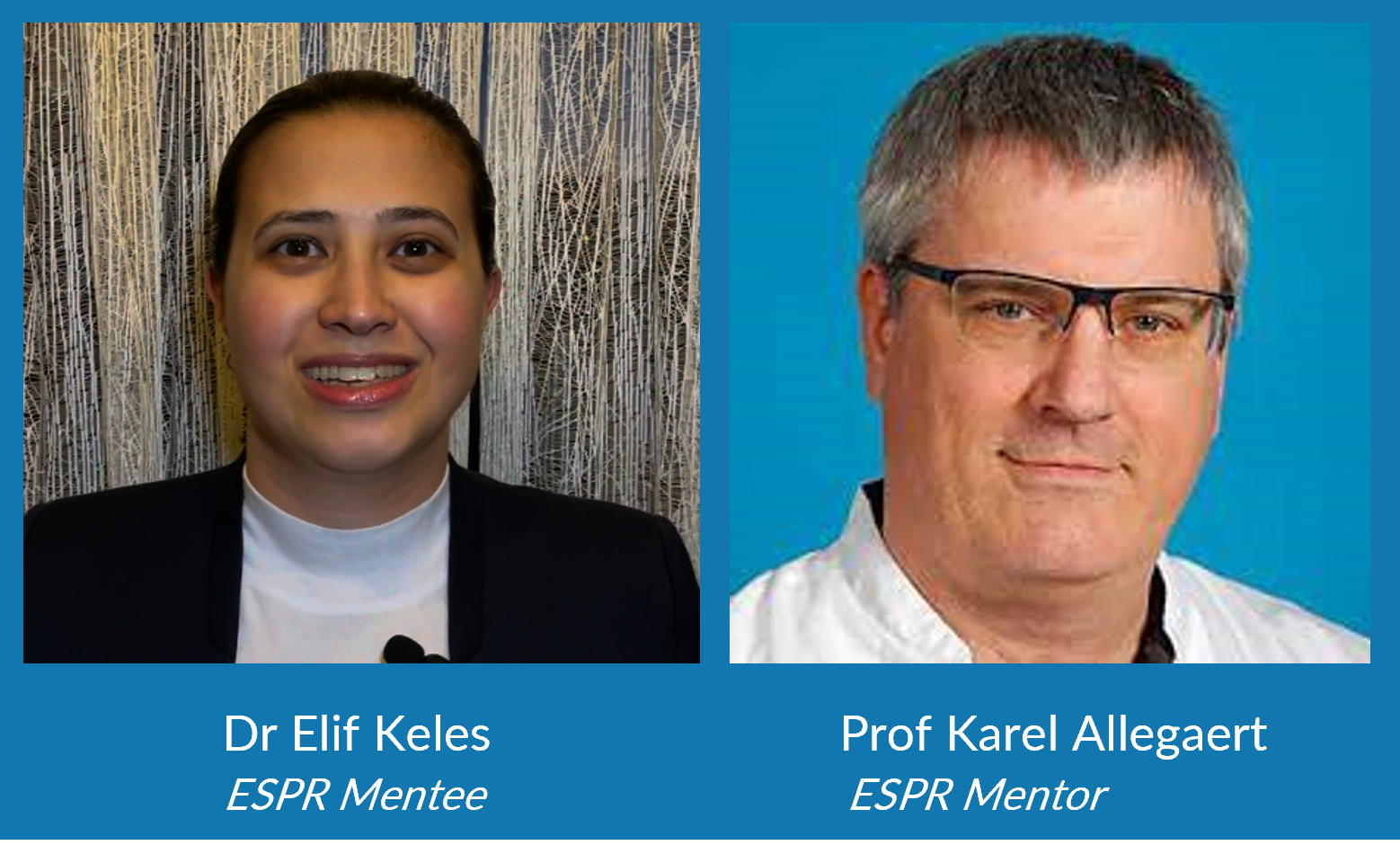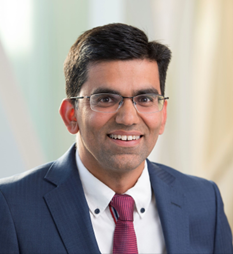ESPR Early Career Investigator Mentoring Programme (ECIMP)
In collaboration with the British Association of Perinatal Medicine (BAPM)
 |
 |
The European Society for Paediatric Research (ESPR), in collaboration with the British Association of Perinatal Medicine (BAPM), are launching the 7th round of the Early Career Investigator Mentoring Programme (ECIMP). Tailored towards early-career investigators conducting child health research, the ECIMP provides the opportunity to receive career development support from renowned international experts in the field of Paediatrics and work together on a research project over the course of two years. Apply by 31 March as a mentor or mentee! We look forward to your submission!

Mentor & Mentee Meeting in October 2024
-
Objectives of the ECIMP: collaborate, research, publish
The objectives of the ECIMP are:
- to establish a network for mentoring and collaboration in Paediatric research.
- to facilitate direct face-to-face interaction of mentors and mentees at the ESPR congresses and beyond.
- to provide Early Career Investigators conducting child health research with the opportunity to receive structured, external guidance from leading experts.
-
Way of working & benefits
All accepted applicants:
- the mentor and mentee will agree on a topic for a joint research project.
- the mentor and mentee will attend contact sessions every 4-6 weeks, with the mentor providing the mentee with regular feedback for evaluation.
- at the end of the two-year cycle, the mentor and mentee will publish a joint project in Pediatric Research if the manuscript is accepted and submit an abstract to one of the ESPR annual meetings - the jENS or CEPAS congresses. They will also have the opportunity to co-chair a scientific session together.
Accepted applicants that are also ESPR members:- the mentee is encouraged to become a member of the ESPR Early Career Investigator Section.
- the mentor and mentee will each receive a one-time complimentary registration to an ESPR conference, along with a one-time travel allowance of up to EUR 700 for reimbursement to attend an upcoming ESPR conference.
- the pairing may receive additional funding to support the research project (e.g. for face-to-face meetings, hardware or the mutual publication) after request to the ESPR office.
- At the end of the two-year period, each pair will submit a 1-page project report. You can download the template here.
-
Eligibility requirements mentors & mentees
For mentors & mentees:
- the applicant is an active ESPR member OR a BAPM member wishing to join the ESPR within one year.
- the applicant conducts child or adolescent health research.
- the applicant is willing to attend the next joint European Neonatal Societies Congress (jENS 2025) or the Congress of the European Paediatric Academic Societies (CEPAS 2026), the two internatinal meetings of the ESPR.
For mentees only:- the applicant is:
a) an early career researcher pursing an academic career, pre-faculty appointment; PhD, MD, Master programme or equivalent started; or
b) in the first three years of a faculty-appointment (assistant professor or equivalent). - Applications are welcome from medical and allied healthcare professionals.
Please note that only complete appliocations that fulfil the requirements can be reviewed by the evaluation committee.
Required documents
Are you interested to participate as a mentee? Then we would like to encourage you to apply by submitting:
- a one-page letter of motivation.
- a one-page curriculum vitae including:
- personal details;
- location of training in Paediatrics and dates;
- years of clinical experience;
- involvement in clinical/research projects;
- list of publications. - a Letter of Support (LoS) from the Division Head or Department Chair explaining what the applicant lacks in his/her environment and how the external mentoring provided by this programme would be beneficial.
- the filled-in mentees' application form (download here).
Are you interested to participate as a mentor? Then we would like to encourage you to apply by submitting:
- a curriculum vitae including:
- personal details;
- location of training in Paediatrics and dates;
- years of clinical experience;
- involvement in clinical/research projects;
- list of publications. - the filled-in mentors' application form (download here).
Project report: At the end of the two-year period, each pair is required to submit a 1-page project report. You can download the template here.
Application deadline: 31 March 2025.
-
Example of a mentor-mentee collaboration
Karel Allegaert and Elif Keles have been successfully working together in the ECIMP for years. As a result of their collaboration they have published the following three papers on creatinine in neonates undergoing whole body hypothermia:
- Serum Creatinine Patterns in Neonates Treated with Therapeutic Hypothermia for Neonatal Encephalopathy (Link);
- Rescaling Creatinine Centiles in Neonates Treated with Therapeutic Hypothermia for Neonatal Encephalopathy (Link);
- A Population Model of Time-Dependent Changes in Serum Creatinine in (Near)term Neonates with Hypoxic-Ischemic Encephalopathy During and After Therapeutic Hypothermia (Link);Watch this short video of Elif talking about their publications and her experiences as a mentee. This is a perfect example of the great achievements which can be realised when mentors and mentees work together in the ECIMP.

-
Meet the ESPR Mentoring Committee
Katarzyna Wróblewska-Seniuk, MD, PhDII Department of Neonatology
Poznan University of Medical Sciences
Poznan, Poland Atul Malhotra, MBBS, MD, DNB, FRACP, PhDConsultant Neonatologist & HeadEarly Neurodevelopment Clinic,Monash Children's HospitalMelbourne, Australia
Atul Malhotra, MBBS, MD, DNB, FRACP, PhDConsultant Neonatologist & HeadEarly Neurodevelopment Clinic,Monash Children's HospitalMelbourne, Australia Minesh Khashu, MBBS, MD, FRCPCHConsultant Neonatologist
Minesh Khashu, MBBS, MD, FRCPCHConsultant Neonatologist
& Prof of Perinatal Health
University Hospitals Dorset
United Kingdom -
Resources for mentors and mentees
...are available in the Members' Room on the ESPR website. Please contact 'office@espr.eu' should you not have your login credentials.
-
Requirements for acknowledging the ESPR in society-supported publications
Research or review papers: For regular research or review papers resulting at least in part from ESPR research support, either through a society funding scheme (e.g. the 'Future of Paediatric Care' Research Grant, the 'Bridging the Gap' Research Grant, the Mentoring Programme) or through dedicated ESPR support (e.g. the ESPR section activities), please state in the section 'Funding' or 'Acknowledgements' according to the journal's requirements the following:
- This work was supported by a research grant from the European Society for Paediatric Research (ESPR) provided to [full name or initials of the recipient(s) or the name of the ESPR section]. The funder had no role in the study design, data collection and analysis, preparation of the manuscript or decision to publish.
ESPR guidelines or opinion papers: For guidelines or opinion papers reflecting the view of the society or one or more ESPR sections, the European Board of Neonatal Child Health Research (EBNCHR) or other, ESPR-integrated initiatives such as Neonatologist Performed Echocardiography (NPE), please proceed as follows:- Give in the title of the manuscript, whenever the character count allows, the full name and abbreviation of the society: European Society for Paediatric Research (ESPR).
- State in the section 'Funding' or 'Acknowledgements' according to the journal´s requirements the following: This work was supported by a research grant from the European Society for Paediatric Research (ESPR) provided to [full name or initials of the recipient(s) or the name of the ESPR section or project]. The funder had no role in study design, data collection and analysis, preparation of the manuscript, or decision to publish.
European School of Neonatology (ESN)
Improving professional neonatal care in Europe and beyond
Learn more


